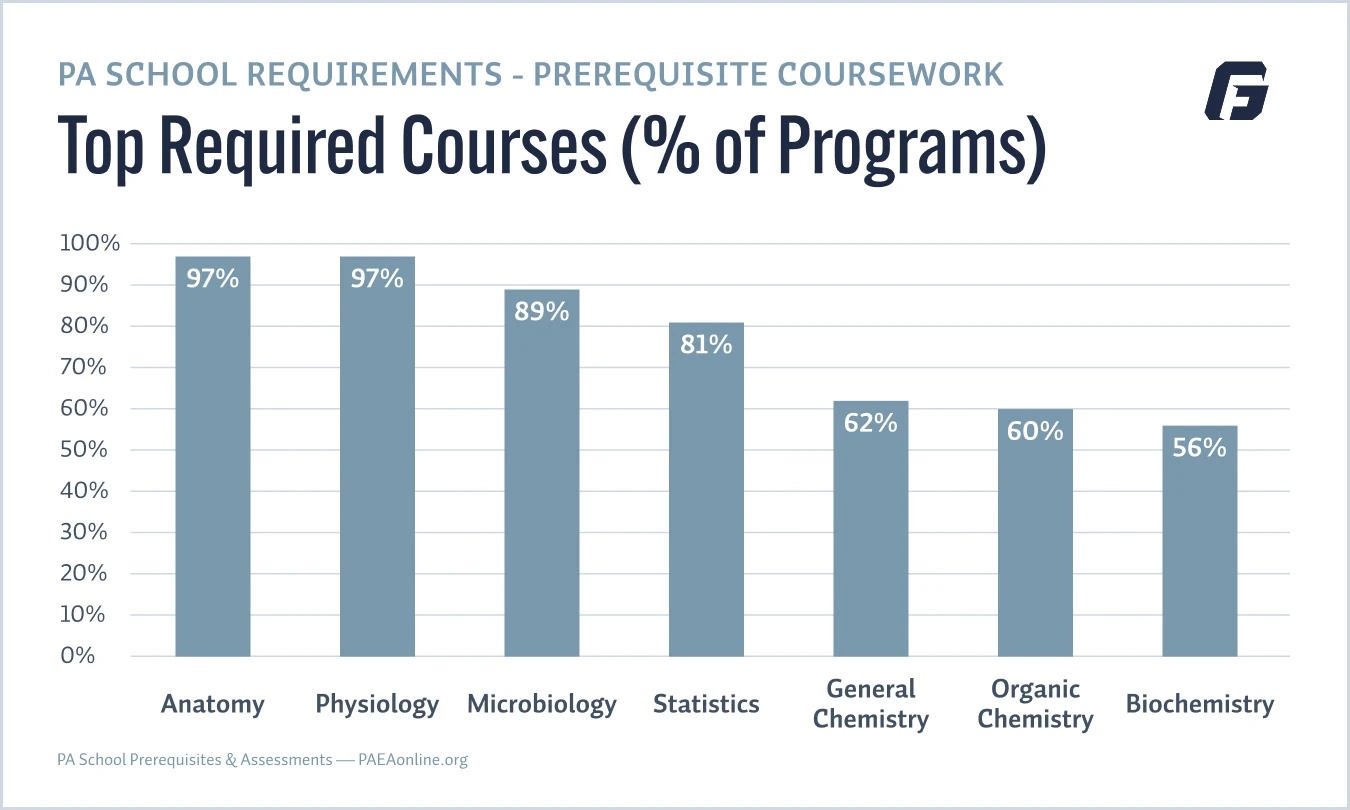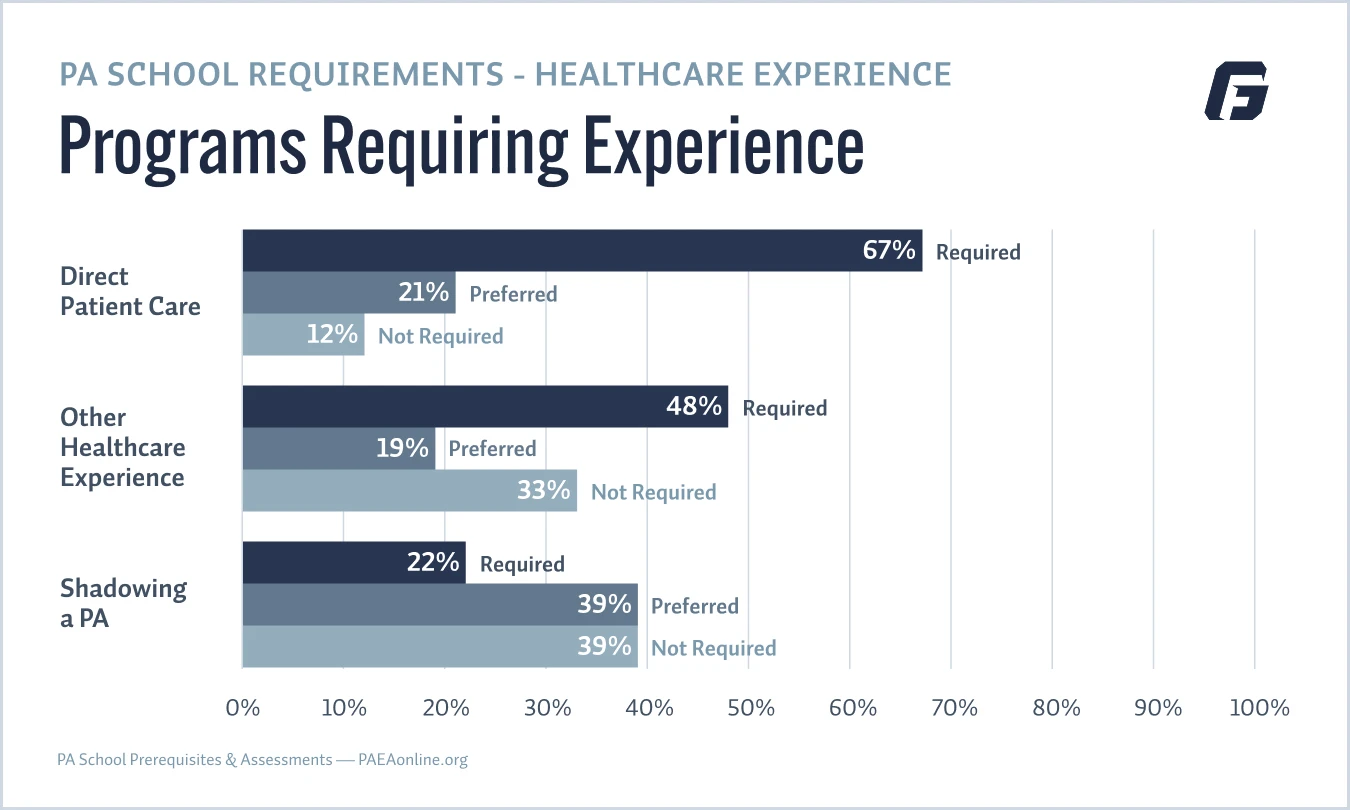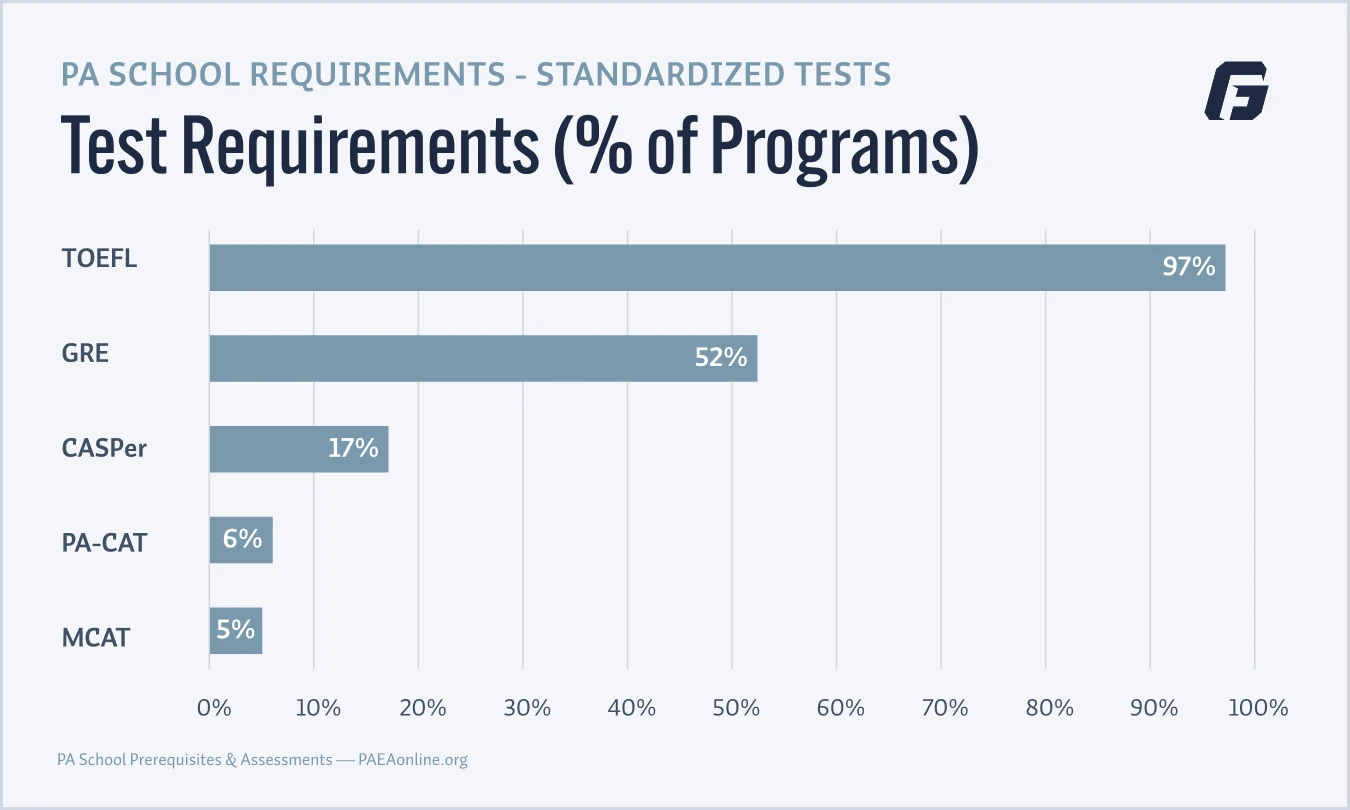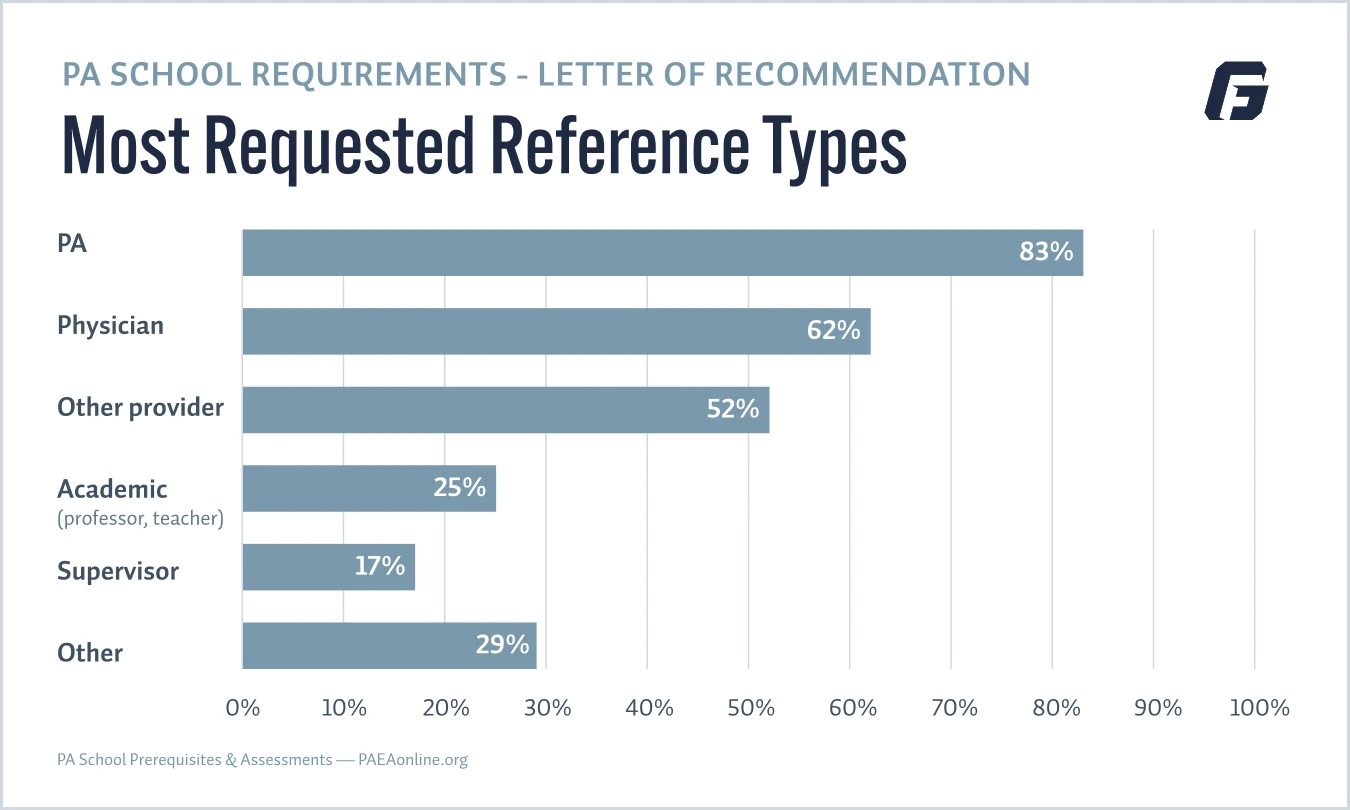PA School Requirements: A Data-Backed Guide for Applicants
Based on insights from 270+ U.S. PA programs
Thinking about applying to PA school? From GPA minimums to healthcare hours, every program sets its own requirements. If you don’t have your heart set on a specific program, it can be hard to understand what’s standard for PA program requirements in general.
To help with that, in 2021-2022 the PA Education Association (PAEA) reviewed the information on the websites of more than 270 PA programs in the U.S. and compiled a 26-page report on what they found about application requirements.
Or, you could just read our summary below.
Note: Program requirements are subject to change – always confirm details directly with the program.
Prerequisite Coursework: What Classes Do You Actually Need?
Most programs require a familiar core of science-heavy prerequisites.
Top Required Courses (% of Programs)
- Anatomy: 97%
- Physiology: 97%
- Microbiology: 89%
- Statistics: 81%
- General Chemistry: 62%
- Organic Chemistry: 60%
- Biochemistry: 56%

Median Number of Credits Required for Prerequisite Courses
- Anatomy: 8 semester credit hours
- Physiology: 8 semester credit hours
- General Chemistry: 8 semester credit hours
- Organic Chemistry: 4 semester credit hours
- Biochemistry: 3 semester credit hours
- Statistics: 3 semester credit hours
- Microbiology: 3 semester credit hours
View prerequisites for George Fox University’s PA program in Oregon
Required GPA for PA School
Median Minimum GPA
Overall undergraduate GPA:
3.0 (Range: 2.5 to 3.5)
Prerequisite GPA:
3.0 (Range: 2.0 to 3.5)
3% (nine programs) indicated no minimum overall GPA as required, and 7% (18 programs) indicated no minimum GPA for prerequisites.
George Fox University requires a minimum 3.0 GPA across all calculated areas (cumulative, prerequisite, biology/chemistry/physics (BCP), etc.), which is consistent with national trends. What makes us unique is that we offer applicants the opportunity to be evaluated on their last 60 credit hours with a minimum 3.3 GPA, if their cumulative GPA falls below the standard.
This allows us to recognize applicants who’ve shown marked improvement in their academic performance and reflects our belief that every academic journey is unique.
Healthcare Experience: How Many Hours Do You Need?
Programs Requiring Experience
| Required | Preferred | Not Required | |
|---|---|---|---|
| Direct patient care | 67% | 21% | 12% |
| Other healthcare experience | 48% | 19% | 33% |
| Shadowing a PA | 22% | 39% | 39% |

Median Minimum Number of Required Healthcare Experience Hours
Direct patient care:
500 hours
(Range: 80 to 2,500)
Other healthcare experience:
500 hours
(Range: 30 to 2,000)
Shadowing a PA:
24 hours
(Range: 4 to 250)
George Fox University does not have a minimum number of required healthcare experience hours, but recommends 2,000 hours of direct patient care experience.
George Fox is in the minority of PA programs that formally score volunteerism/service hours as a heavily weighted part of our admissions matrix.
We believe meaningful, post-high school service reflects the compassion and commitment we look for in future providers. It also gives applicants a tangible way to demonstrate alignment with our program mission and values.
View George Fox University’s patient care experience worksheet (PDF)
Standardized Tests: Still Necessary?
Test Requirements (% of Programs)
Almost half of PA programs don’t require the GRE:
- TOEFL: 97% (primarily for international applicants)
- GRE: 52%
- CASPer: 17%
- PA-CAT: 6%
- MCAT: 5%

Median Required GRE Score for PA School
For those that do require the GRE, here are the median requirements:
- GRE: Total – 306
- GRE: Verbal – 153
- GRE: Quantitative – 152
- GRE: Writing – 4.1
George Fox University does not require or consider any standardized test in the admissions process.
View requirements for George Fox University’s PA program in Oregon
Letters of Recommendation: Who Should You Ask?
99% of programs require written references from prospective students. The median number of required references was three.
Most Requested Reference Types (% of Programs)
- PA: 83%
- Physician: 62%
- Other provider: 52%
- Academic (professor, teacher): 25%
- Supervisor: 17%
- Other: 29%

George Fox University is unique in the type of letters that we require. We take a more intentional approach to ensure we receive meaningful, experience-based insights into each applicant. We require:
- Two professional references (supervisor or coworker)
Ideally from individuals in the medical field who have observed the applicant’s work ethic, communication and professionalism over time in a day-to-day setting, such as a paid clinical job. We strongly discourage letters based on brief shadowing or one-time volunteer experiences (e.g., 24-hour clinical exposure), as they rarely offer the depth of feedback needed. - One academic reference from a professor or instructor who can speak to the applicant’s academic strengths and readiness for graduate-level learning.
This structure helps us better assess both the clinical potential and character of each applicant in a way that aligns with our mission and expectations for future PAs.
Interviews: What's the Format?
88% require an in-person interview
9% do not require an on-site interview
3% offer hybrid (virtual or in-person)
George Fox University conducts in-person interviews, which are a great way to get a feel for our compassionate and collaborative community. Our university promise is that students will be known personally, and that Be Known promise starts with our interviews.
You’ll meet professors and current students at our Medical Sciences Building in Newberg, Oregon, which features patient exam rooms, 3D Anatomage Tables, group study spaces that facilitate problem-based learning, and dedicated areas for focused research.
Deposits: What Will You Pay?
89% of programs require a deposit
Median: $810 (Range: $100 to $2,000)
99% are nonrefundable
If studying in the beautiful Pacific Northwest sounds appealing to you, why not check out George Fox University’s PA program in Newberg, Oregon?
View detailed information on George Fox application requirements